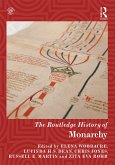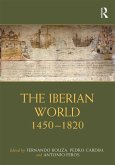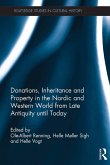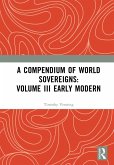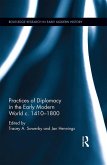Diversity and Empires (eBook, ePUB)
Negotiating Plurality in European Imperial Projects from Early Modernity
Redaktion: Rose, Sophie; Heijmans, Elisabeth
0,99 €
0,99 €
inkl. MwSt.
Sofort per Download lieferbar

0 °P sammeln
0,99 €
Als Download kaufen

0,99 €
inkl. MwSt.
Sofort per Download lieferbar

0 °P sammeln
Jetzt verschenken
Alle Infos zum eBook verschenken
0,99 €
inkl. MwSt.
Sofort per Download lieferbar
Alle Infos zum eBook verschenken

0 °P sammeln
Diversity and Empires (eBook, ePUB)
Negotiating Plurality in European Imperial Projects from Early Modernity
Redaktion: Rose, Sophie; Heijmans, Elisabeth
- Format: ePub
- Merkliste
- Auf die Merkliste
- Bewerten Bewerten
- Teilen
- Produkt teilen
- Produkterinnerung
- Produkterinnerung

Bitte loggen Sie sich zunächst in Ihr Kundenkonto ein oder registrieren Sie sich bei
bücher.de, um das eBook-Abo tolino select nutzen zu können.
Hier können Sie sich einloggen
Hier können Sie sich einloggen
Sie sind bereits eingeloggt. Klicken Sie auf 2. tolino select Abo, um fortzufahren.

Bitte loggen Sie sich zunächst in Ihr Kundenkonto ein oder registrieren Sie sich bei bücher.de, um das eBook-Abo tolino select nutzen zu können.
Examining diversity as a fundamental reality of empire, this book explores European colonial empires, both terrestrial and maritime, to show how they addressed the questions of how to manage diversity.
- Geräte: eReader
- ohne Kopierschutz
- eBook Hilfe
- Größe: 0.91MB
Andere Kunden interessierten sich auch für
![The Routledge History of Monarchy (eBook, ePUB) The Routledge History of Monarchy (eBook, ePUB)]() The Routledge History of Monarchy (eBook, ePUB)45,95 €
The Routledge History of Monarchy (eBook, ePUB)45,95 €![The Iberian World (eBook, ePUB) The Iberian World (eBook, ePUB)]() The Iberian World (eBook, ePUB)45,95 €
The Iberian World (eBook, ePUB)45,95 €![Empires of Knowledge (eBook, ePUB) Empires of Knowledge (eBook, ePUB)]() Empires of Knowledge (eBook, ePUB)39,95 €
Empires of Knowledge (eBook, ePUB)39,95 €![Donations, Inheritance and Property in the Nordic and Western World from Late Antiquity until Today (eBook, ePUB) Donations, Inheritance and Property in the Nordic and Western World from Late Antiquity until Today (eBook, ePUB)]() Donations, Inheritance and Property in the Nordic and Western World from Late Antiquity until Today (eBook, ePUB)44,95 €
Donations, Inheritance and Property in the Nordic and Western World from Late Antiquity until Today (eBook, ePUB)44,95 €![Longman Companion to the Formation of the European Empires, 1488-1920 (eBook, ePUB) Longman Companion to the Formation of the European Empires, 1488-1920 (eBook, ePUB)]() Muriel E. ChamberlainLongman Companion to the Formation of the European Empires, 1488-1920 (eBook, ePUB)34,95 €
Muriel E. ChamberlainLongman Companion to the Formation of the European Empires, 1488-1920 (eBook, ePUB)34,95 €![A Compendium of World Sovereigns: Volume III Early Modern (eBook, ePUB) A Compendium of World Sovereigns: Volume III Early Modern (eBook, ePUB)]() A Compendium of World Sovereigns: Volume III Early Modern (eBook, ePUB)41,95 €
A Compendium of World Sovereigns: Volume III Early Modern (eBook, ePUB)41,95 €![Practices of Diplomacy in the Early Modern World c.1410-1800 (eBook, ePUB) Practices of Diplomacy in the Early Modern World c.1410-1800 (eBook, ePUB)]() Practices of Diplomacy in the Early Modern World c.1410-1800 (eBook, ePUB)43,95 €
Practices of Diplomacy in the Early Modern World c.1410-1800 (eBook, ePUB)43,95 €-
-
-
Examining diversity as a fundamental reality of empire, this book explores European colonial empires, both terrestrial and maritime, to show how they addressed the questions of how to manage diversity.
Dieser Download kann aus rechtlichen Gründen nur mit Rechnungsadresse in A, B, BG, CY, CZ, D, DK, EW, E, FIN, F, GR, HR, H, IRL, I, LT, L, LR, M, NL, PL, P, R, S, SLO, SK ausgeliefert werden.
Produktdetails
- Produktdetails
- Verlag: Taylor & Francis
- Seitenzahl: 254
- Erscheinungstermin: 2. Juni 2023
- Englisch
- ISBN-13: 9781000893373
- Artikelnr.: 68125090
- Verlag: Taylor & Francis
- Seitenzahl: 254
- Erscheinungstermin: 2. Juni 2023
- Englisch
- ISBN-13: 9781000893373
- Artikelnr.: 68125090
- Herstellerkennzeichnung Die Herstellerinformationen sind derzeit nicht verfügbar.
Elisabeth Heijmans (University of Antwerp) is an economic and social historian of French and Dutch early modern colonialism and colonial trade. She is the author of the 2020 monograph The Agency of Empire : Connections and Strategies in French Overseas Expansion (1686-1746) and has published in English, French, and Dutch. Sophie Rose is a postdoctoral researcher at the University of Duisburg-Essen with an interest in the colonial Dutch Caribbean, global history, and the history of morality. She is currently adapting her PhD dissertation, Regulating Relations: Controlling Sex and Marriage in the Early Modern Dutch Empire, into a book.
Part 1: Religion and the negotiation of belonging
Chapter 1. Old and New Members: Religious and Civic Conversion in the
Iberian Worlds
Tamar Herzog, Harvard University
Chapter 2. In and beyond the Portuguese Empire: Coping with marriage ritual
diversity in early modern Goa
Ângela Barreto Xavier, University of Lisbon
Chapter 3. Barrido: A thief, Christian and Pulaya. The implications of
categorization on the eighteenth century Malabar coast
Alexander Geelen, International Institute of Social History
Part 2: Slavery and legal status
Chapter 4. The uses and management of Indigenous, African and mixed-raced
identities in the legal sphere in Portuguese Amazonia (18th century)
André Luís Ferreira, Federal University of Pará
Chapter 5. Experiences of enslaved persons with criminal justice and social
control on Curaçao, 1730-1740
Stef Vink, Leiden University
Chapter 6. Indigenous populations and labor in the Dutch colonial empire -
the example of the Cape and the Guianas
Rafaël Thiebaut, Musée du quai Branly - Jacques Chirac
Part 3: Subjecthood and imperial states
Chapter 7. Making Peace Beyond the Line: Capitulations, Interpolity Law,
and Political Pluralism in Suriname and New Netherland, 1664-1675
Timo McGregor, London School of Economics
Chapter 8. Imperfect Strangers: Frenchmen, foreigners and illegality in
18th-century Guadeloupe
Tessa de Boer, Leiden University
Part 4: Diversity in theory and practice: a longue durée perspective
Chapter 9. Colonial Segregation, Apartheid State and Rainbow Nation:
Negotiating Diversity in Twentieth-Century South Africa
Margret Frenz, University of Stuttgart
Chapter 10. Diversity as a fact of imperial life: Diversity as a fact of
imperial life: a long-term view on Russia
Jane Burbank, New York University
Chapter 1. Old and New Members: Religious and Civic Conversion in the
Iberian Worlds
Tamar Herzog, Harvard University
Chapter 2. In and beyond the Portuguese Empire: Coping with marriage ritual
diversity in early modern Goa
Ângela Barreto Xavier, University of Lisbon
Chapter 3. Barrido: A thief, Christian and Pulaya. The implications of
categorization on the eighteenth century Malabar coast
Alexander Geelen, International Institute of Social History
Part 2: Slavery and legal status
Chapter 4. The uses and management of Indigenous, African and mixed-raced
identities in the legal sphere in Portuguese Amazonia (18th century)
André Luís Ferreira, Federal University of Pará
Chapter 5. Experiences of enslaved persons with criminal justice and social
control on Curaçao, 1730-1740
Stef Vink, Leiden University
Chapter 6. Indigenous populations and labor in the Dutch colonial empire -
the example of the Cape and the Guianas
Rafaël Thiebaut, Musée du quai Branly - Jacques Chirac
Part 3: Subjecthood and imperial states
Chapter 7. Making Peace Beyond the Line: Capitulations, Interpolity Law,
and Political Pluralism in Suriname and New Netherland, 1664-1675
Timo McGregor, London School of Economics
Chapter 8. Imperfect Strangers: Frenchmen, foreigners and illegality in
18th-century Guadeloupe
Tessa de Boer, Leiden University
Part 4: Diversity in theory and practice: a longue durée perspective
Chapter 9. Colonial Segregation, Apartheid State and Rainbow Nation:
Negotiating Diversity in Twentieth-Century South Africa
Margret Frenz, University of Stuttgart
Chapter 10. Diversity as a fact of imperial life: Diversity as a fact of
imperial life: a long-term view on Russia
Jane Burbank, New York University
Part 1: Religion and the negotiation of belonging
Chapter 1. Old and New Members: Religious and Civic Conversion in the
Iberian Worlds
Tamar Herzog, Harvard University
Chapter 2. In and beyond the Portuguese Empire: Coping with marriage ritual
diversity in early modern Goa
Ângela Barreto Xavier, University of Lisbon
Chapter 3. Barrido: A thief, Christian and Pulaya. The implications of
categorization on the eighteenth century Malabar coast
Alexander Geelen, International Institute of Social History
Part 2: Slavery and legal status
Chapter 4. The uses and management of Indigenous, African and mixed-raced
identities in the legal sphere in Portuguese Amazonia (18th century)
André Luís Ferreira, Federal University of Pará
Chapter 5. Experiences of enslaved persons with criminal justice and social
control on Curaçao, 1730-1740
Stef Vink, Leiden University
Chapter 6. Indigenous populations and labor in the Dutch colonial empire -
the example of the Cape and the Guianas
Rafaël Thiebaut, Musée du quai Branly - Jacques Chirac
Part 3: Subjecthood and imperial states
Chapter 7. Making Peace Beyond the Line: Capitulations, Interpolity Law,
and Political Pluralism in Suriname and New Netherland, 1664-1675
Timo McGregor, London School of Economics
Chapter 8. Imperfect Strangers: Frenchmen, foreigners and illegality in
18th-century Guadeloupe
Tessa de Boer, Leiden University
Part 4: Diversity in theory and practice: a longue durée perspective
Chapter 9. Colonial Segregation, Apartheid State and Rainbow Nation:
Negotiating Diversity in Twentieth-Century South Africa
Margret Frenz, University of Stuttgart
Chapter 10. Diversity as a fact of imperial life: Diversity as a fact of
imperial life: a long-term view on Russia
Jane Burbank, New York University
Chapter 1. Old and New Members: Religious and Civic Conversion in the
Iberian Worlds
Tamar Herzog, Harvard University
Chapter 2. In and beyond the Portuguese Empire: Coping with marriage ritual
diversity in early modern Goa
Ângela Barreto Xavier, University of Lisbon
Chapter 3. Barrido: A thief, Christian and Pulaya. The implications of
categorization on the eighteenth century Malabar coast
Alexander Geelen, International Institute of Social History
Part 2: Slavery and legal status
Chapter 4. The uses and management of Indigenous, African and mixed-raced
identities in the legal sphere in Portuguese Amazonia (18th century)
André Luís Ferreira, Federal University of Pará
Chapter 5. Experiences of enslaved persons with criminal justice and social
control on Curaçao, 1730-1740
Stef Vink, Leiden University
Chapter 6. Indigenous populations and labor in the Dutch colonial empire -
the example of the Cape and the Guianas
Rafaël Thiebaut, Musée du quai Branly - Jacques Chirac
Part 3: Subjecthood and imperial states
Chapter 7. Making Peace Beyond the Line: Capitulations, Interpolity Law,
and Political Pluralism in Suriname and New Netherland, 1664-1675
Timo McGregor, London School of Economics
Chapter 8. Imperfect Strangers: Frenchmen, foreigners and illegality in
18th-century Guadeloupe
Tessa de Boer, Leiden University
Part 4: Diversity in theory and practice: a longue durée perspective
Chapter 9. Colonial Segregation, Apartheid State and Rainbow Nation:
Negotiating Diversity in Twentieth-Century South Africa
Margret Frenz, University of Stuttgart
Chapter 10. Diversity as a fact of imperial life: Diversity as a fact of
imperial life: a long-term view on Russia
Jane Burbank, New York University

